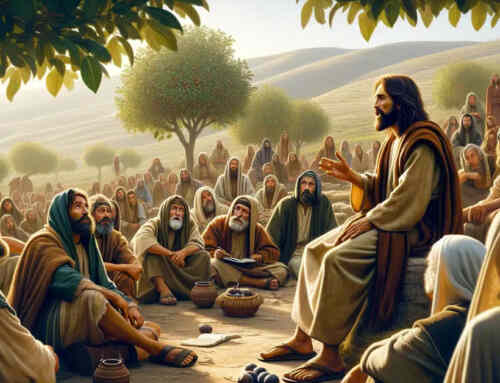Luke 13:6, “…A man had a fig tree planted in his vineyard, and he came seeking fruit on it and found none. And he said to the vinedresser, ‘Look, for three years now I have come seeking fruit on this fig tree, and I find none. Cut it down. Why should it use up the ground?’ And he answered him, ‘Sir let it alone this year also, until I dig around it and put on manure. Then if it should bear fruit next year, well and good; but if not, you can cut it down.’” (ESV)
In Luke chapter 12, Jesus had just explained to the nation of Israel that they were not responding to His message and “needed to be ready.” They had been called to repentance and were being watered by words of truth, but not bearing fruit. According to Isaiah 5:7, Israel was “…the vineyard of the LORD of hosts.” They had enjoyed a privileged relationship with God, who had provided the best conditions for bearing fruits of righteousness.
The prophetic parable in question refers to Israel’s necessity to repent or be removed from their unique position as God’s people. God was the owner of the fig tree who nurtured and blessed Israel through the prophets and desired fruitage at the appointed time. He was disappointed in the lack of fruit after three years and suggested the fig tree should be cut down and replaced. Jesus, the vinedresser requested another year of mercy and grace, in hope that the nation could be stimulated into fruitfulness with further cultivation. (Typically, a fig tree does not produce fruit for two years, and some trees take as long as six years to reach maturity). God was willing to wait for the fruit, but righteously judged that the tree would be destroyed if it remained non-productive.
In Luke 3:8 & 9, John explained that the time of judgment had come upon Israel. The three and a half years of Jesus’ ministry and Israel’s ultimate judgment (John 1:11- “He came to his own and they received him not”) culminated when Jesus declared in Matthew 21:18-22, ‘You will never bear fruit again!.” Their spiritually barren tree immediately withered and “their house was left desolate.” (Matthew 23:37-39).
The nation experienced blight and desolation, but always had the promise that it would again become a living tree. Mark 13:28, 29 reminds us to “learn this lesson from the fig tree: as soon as its twigs get tender and its leaves come out, you know that summer is near, even so, when you see these things happening you know that it is …. right at the door.” The promises of Jeremiah 16:13-15 would be fulfilled- “For I will restore them to the land I gave their forefathers.” We can see that Israel’s time of disfavor has ended – since 1948, the nation has been restored and is putting forth leaves!
For Christians and Jews alike, the parable is a warning that we should not delay to show the fruits of the Spirit outlined in Galatians 5:22, 23 (love, joy, peace, patience, kindness, goodness, faithfulness, gentleness, self-control) and continue to watch and pray, lest we be cast away as unfruitful branches.















